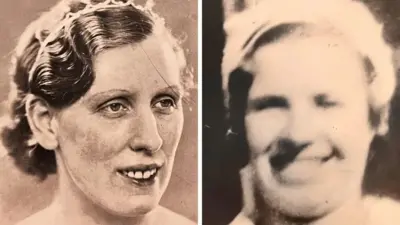We've updated our Privacy and Cookies Policy
We've made some important changes to our Privacy and Cookies Policy and we want you to know what this means for you and your data.
Crispin Dye: New person of interest identified in AC/DC manager death
Image source, NSW Police
- Author, Antoinette Radford
- Role, ┤¾Ž¾┤½├Į News
New forensic evidence has identified a person of interest in the 1993 death of Australian rock band AC/DC's former manager, Crispin Dye.
The 41-year-old died on Christmas Day, two days after he was found with severe head injuries in an inner city Sydney suburb.
New testing found DNA on Mr Dye's jeans matched DNA from another crime scene.
His death is being examined as part of a broader inquiry into gay hate crimes in New South Wales (NSW).
The inquiry heard that despite multiple police investigations, at no stage since his death almost 30 years ago had Mr Dye's clothes been sent for forensic examination.
It also found that two pieces of paper found in Mr Dye's pocket had not been analysed, despite one having a name written on it - and another a blood stain.
The person of interest, named only as NP252, died in 2002. It is not clear if he played a role in Mr Crispin's death based on current available information.
The inquiry heard NP252 had a substantive criminal history - including other assault convictions.
The inquiry into gay hate crimes commenced in April 2022 after research from the Australian Institute of Criminology questioned whether police had sufficiently investigated deaths between 1976 and 2000.
In 2018, police acknowledged that they had previously played a part in "marginalising" the LGBT community.
"[New South Wales Police] acknowledges without qualification both its and society's acceptance of gay bashings and shocking violence directed at gay men, and the LGBT community between 1976 and 2000," it said in a statement.
It added: "There were certainly people murdered because of their sexuality during this time."
The Institute of Criminology found up to 80 gay men were killed between 1976-2000 and found that violence towards gay men during the period was "extreme and often brutal".
Homosexuality was decriminalised in NSW in 1984. Violence against LGBT people was common but rarely investigated.
Top Stories
More to explore
Most read
Content is not available








